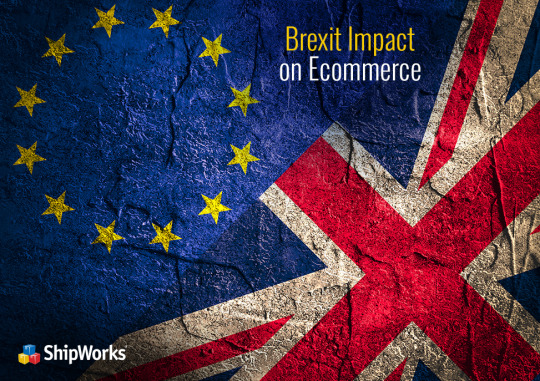How Will Brexit Affect the Global Ecommerce Market and U.S. Retailers?
 All eyes are on the world economy after Britain’s recent decision to exit the European Union shocked the world. Soon after the vote to exit, the British pound fell 7.5 percent against the U.S. dollar, making goods sold by U.S. retailers automatically – and at times prohibitively – more expensive for British consumers.
All eyes are on the world economy after Britain’s recent decision to exit the European Union shocked the world. Soon after the vote to exit, the British pound fell 7.5 percent against the U.S. dollar, making goods sold by U.S. retailers automatically – and at times prohibitively – more expensive for British consumers.
As a result, American online retailers should brace for changes and complications that will likely arise from Britain’s revised and rebuilt trading relationships and rules. While U.S. imports into the U.K. are not included in the EU treaty, Brexit will impact goods and staffing transferring between the U.K. and other European nations. Here’s a look at what to watch for.
Sellers
If you currently work with U.K. customers, expect cross-border sales to become more complicated in the longer term. In addition, the weak British pound will almost certainly cause U.K. shoppers to cut back on their spending in light of the economic disruption and possible job losses. On the other hand, these realities could be an opportunity for U.S. sellers to drive innovation in order to better meet the needs of buyers in the new U.K. during the transition. Delivering exceptional digital experiences can help set your online shop apart from the competition, and may lead to increased sales outside of the U.K., too.
Marketplaces
eBay sent a message to sellers after the announcement that stressed its place as a global business and reassured users that they would be informed of any changes if or when they occur. Etsy acknowledged the uncertainty and stated it was “supportive of any measures to facilitate ease of sales into all markets,” according to EcommerceBytes. Amazon, meanwhile, may encounter staffing problems and resultant labor costs if its existing immigrant workforce is unable to stay in the U.K. to work. However, Amazon is well-positioned to offer discounts and deals in a tough economy, which could make it a preferred marketplace in that circumstance, says CNBC.
Shipping
Because the actual exit from the European Union won’t happen overnight, shipping services won’t be affected anytime soon. In terms of longer-range speculation, experts foresee implications for online shops and e-marketplaces, some of which serve the EU via U.K. hubs and warehouses. In some cases, these online sellers may opt to move warehouses to EU countries to avoid having to manage new internal market rules, but it’s also likely that the U.K. will see the benefits of maintaining familiar policies and pricing after the split.
Mobile
Economy-affected price-conscious buyers may increasingly look to mobile commerce, says Business2Community, so managing the burgeoning search traffic may present an excellent opportunity for mobile sites to convert into more sales during the downturn.
Overall, it’s much too soon to know the true extent of the impact of Brexit on ecommerce. Amidst the uncertainty, ecommerce sellers should view changes as an opportunity to refine practices and continually evaluate their place in the global market.